Hey Transform Education Community,
Periods can hugely impact girls’ education. Due to period poverty and stigma, girls can be denied access to education and can face extreme bullying and gender-based violence in and around schools.
We stand with young activists across the globe who are working to end period poverty and stigma.
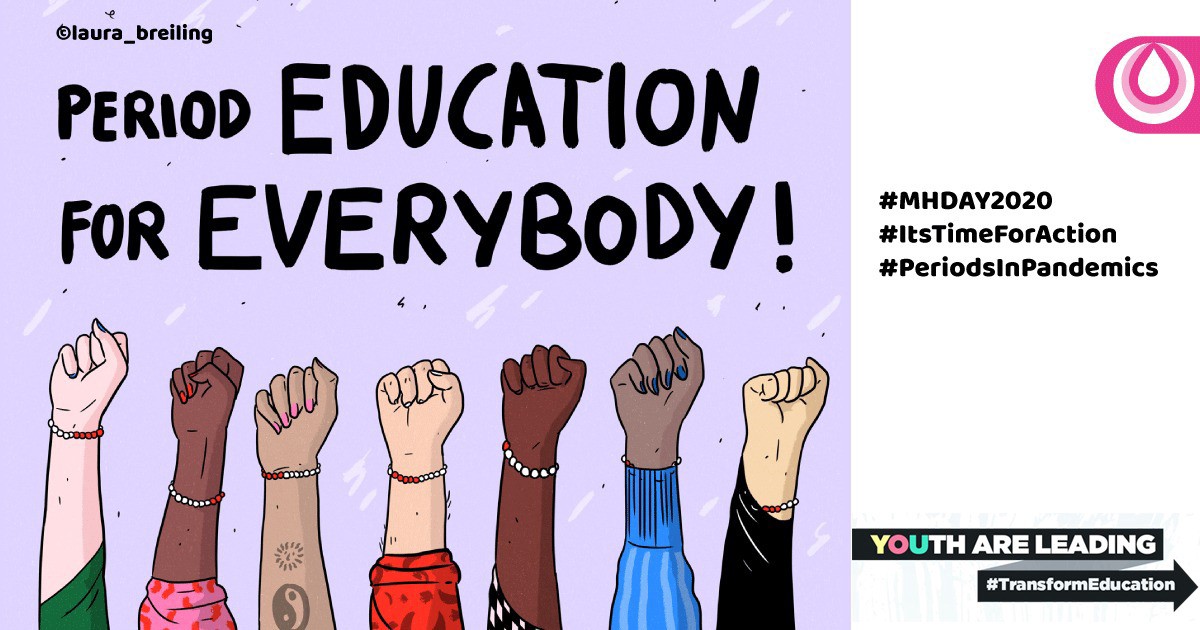
Neetu, Zeituna and Sarah are Education Transformers who are taking action in their communities. Here‘s what they have to say:
Neetu, Nepal:
Volunteering is something that I wanted to do since my childhood and VSO International Citizen Service (ICS) has provided me the opportunity to have this experience. Volunteering with VSO ICS jointly with the partner NGO Aasman Nepal where I worked on the Inclusive Education Program in the Dhading district of Nepal.
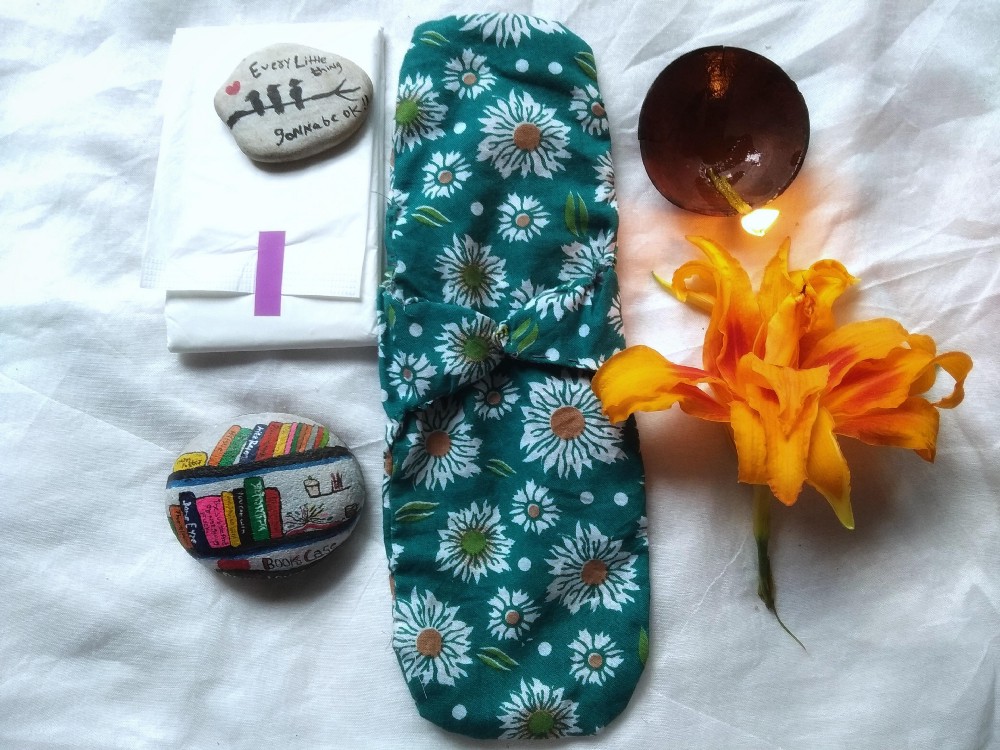
While volunteering I ran the menstrual hygiene and reusable pads making workshop. I was able to come up with the idea, for awareness, having seen how the subject of menstruation is handled in rural areas. Even when the country is becoming progressive, deep rooted traditions have still not managed to fade yet. As I grew up I was able to see the impact of these traditions such as not using pads, rather using a cloth (many times old), continuously washing, seeing it being washed and reused inspired me to conduct a workshop on reusable pad making. This pad is made by hand at home. On average up to 16,800 disposable pads are used by a woman during her lifetime. Most of the disposable sanitary pads are made of non-biodegradable material which leads to environmental hazards. One of the best ways to deal with this problem is to switch to reusable cloth pads. I have been using cloth pads from last year. Cloth pads are absolutely comfortable and easy to use. Also, these pads are reusable so they are cost-effective, eco-friendly and most importantly you can make it on your own. For my program I also did a session with girls and made sure they understood that periods are nothing to be ashamed of.
A quote I heard many times, but only after volunteering I have been able to fully understand it is “you must be the change you wish to see in the world.” I was able to become a part of something great and even if I’m not making a huge difference in society, I’m making a change in perspective that can be a start of something great.
Zeituna, Kenya:
“UNESCO estimates that one in ten adolescent girls in Kenya miss school during menstruation and some eventually drop out. The factors behind it being the inaccessibility of sanitary products, social stigmas surrounding menstruation and the culture of silence.
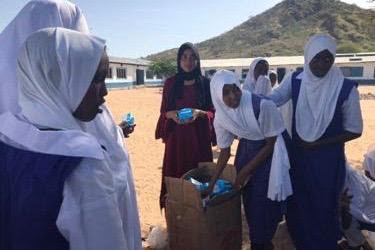
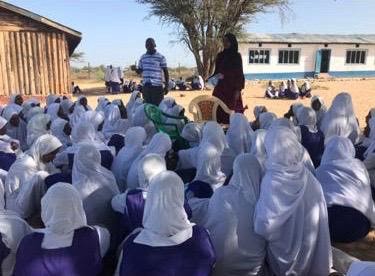
I wanted to do something to help, so I started visiting primary schools to educate and encourage girls that menstruation is a normal process and also to break taboos surrounding menstruation. I started distributing sanitary pads because lack of sanitary towels can lead to absenteeism, school dropouts and early marriages.
Lack of menstrual education is one of the barriers to achieving menstrual hygiene and having conversations about menstruation in schools helps in breaking those barriers, making girls feel more open, safer and more secure.”
Sarah, Ghana
“My mother and grandmother grew up in rural Ghana and both left school at the age of 12 to sell local produce on the side of the road. This was not by choice, it was because they did not have access to effective period resources, this meant they spent a large amount of time out of school each month.
This is currently the case for 80% of girls living in rural communities in the northern part of Ghana, missing on average 3–5 days of school per month because of limited access to period resources.
Recognising this issue, I decided to create Investing in Girls’ Education in Africa (IGEA Enterprise) which advocates for investment in the education of young girls living in rural communities in Africa.
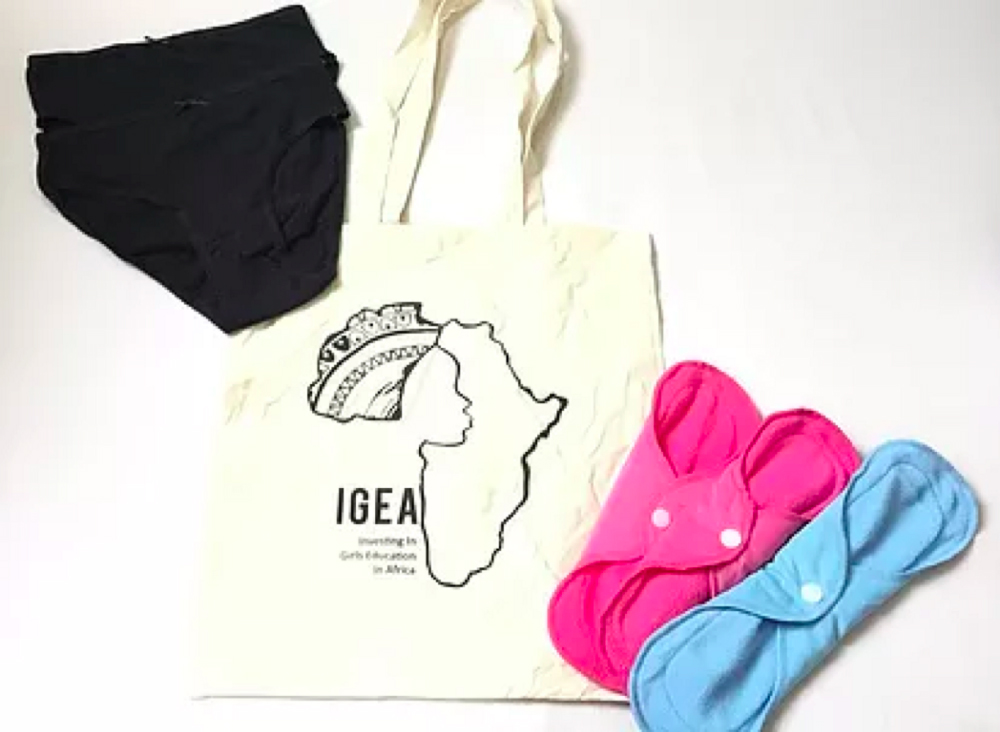
Our first project Menstruate and Educate aims to eliminate the barriers that a lack of access to effective menstrual resources has on the ability for a young girl to receive a quality education. We designed the IGEA Bag which contains 3 reusable period pad kits that last for up to two years, a cotton tote bag and two pairs of starting knickers. We also provide community-focused workshops with community leaders, parents and teachers challenging the taboos around periods in the community.”
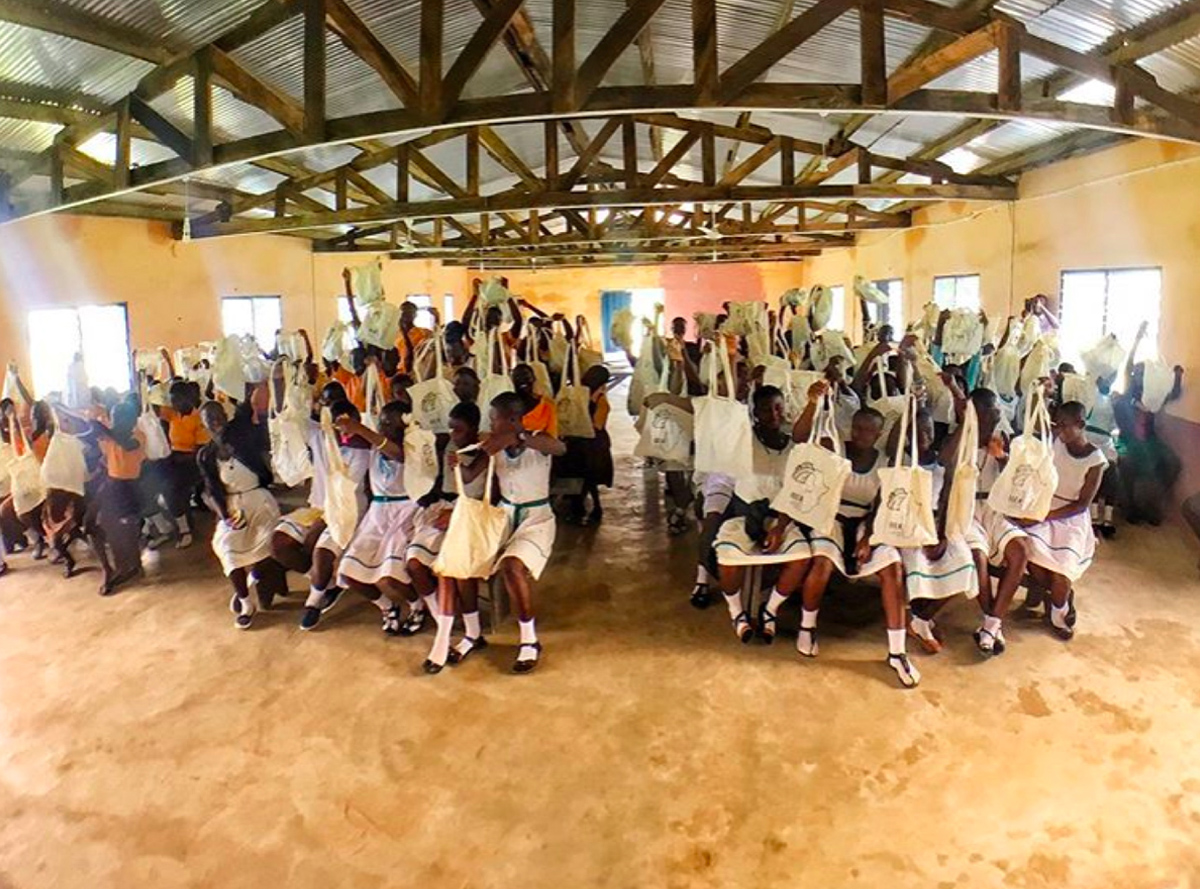
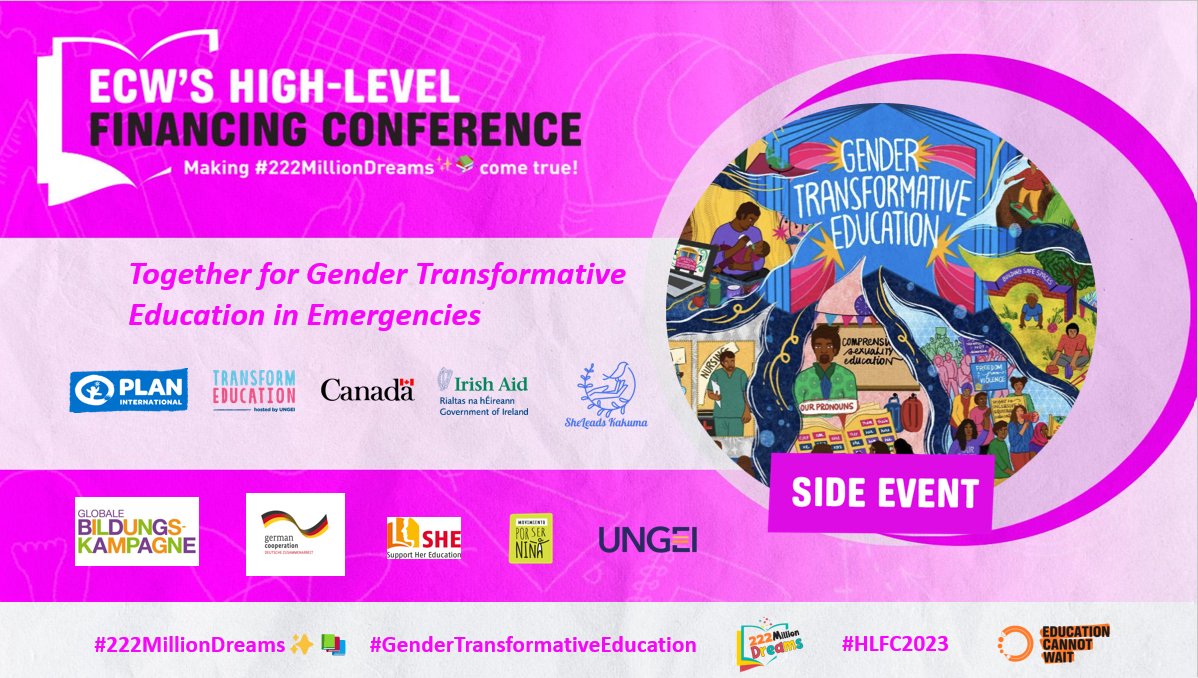
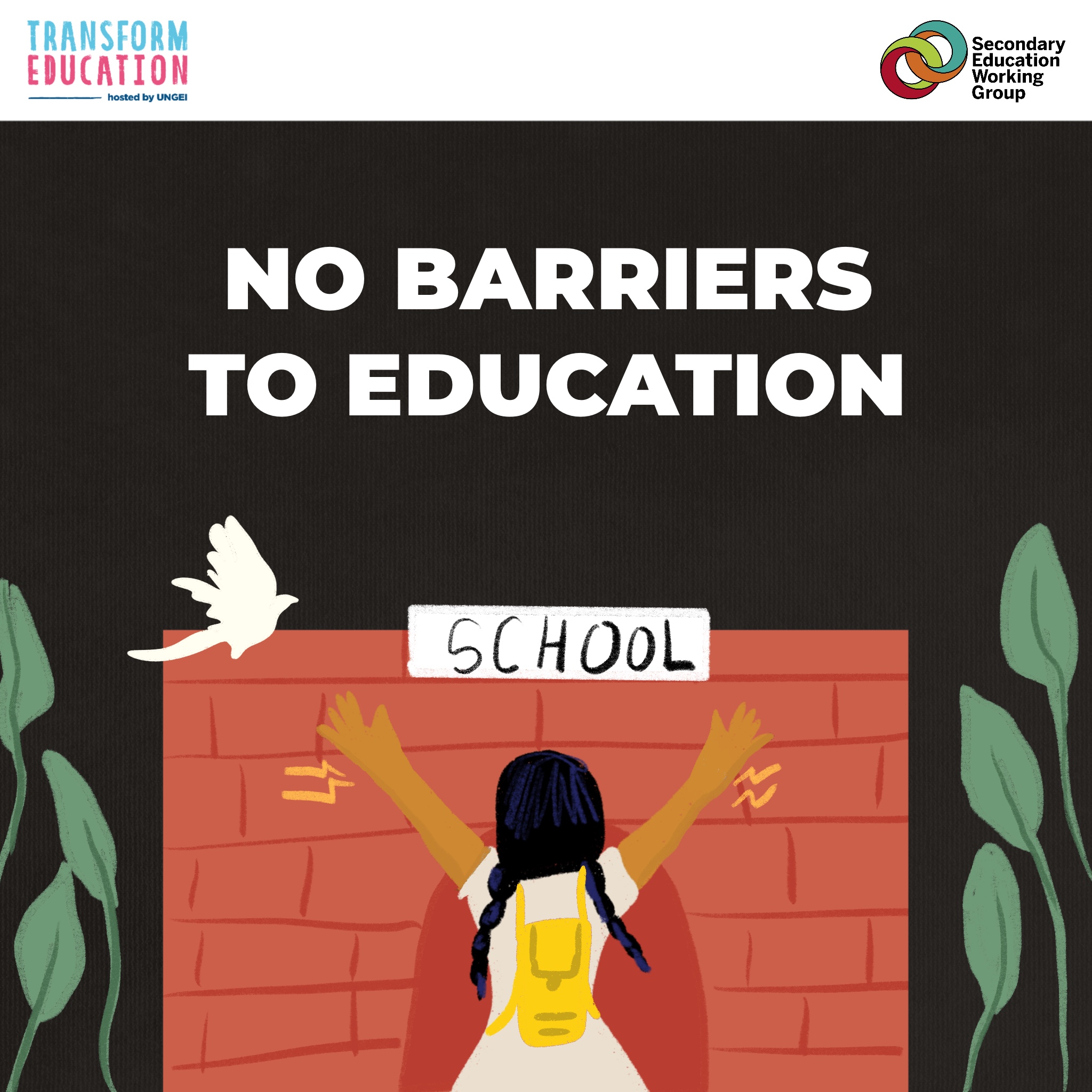
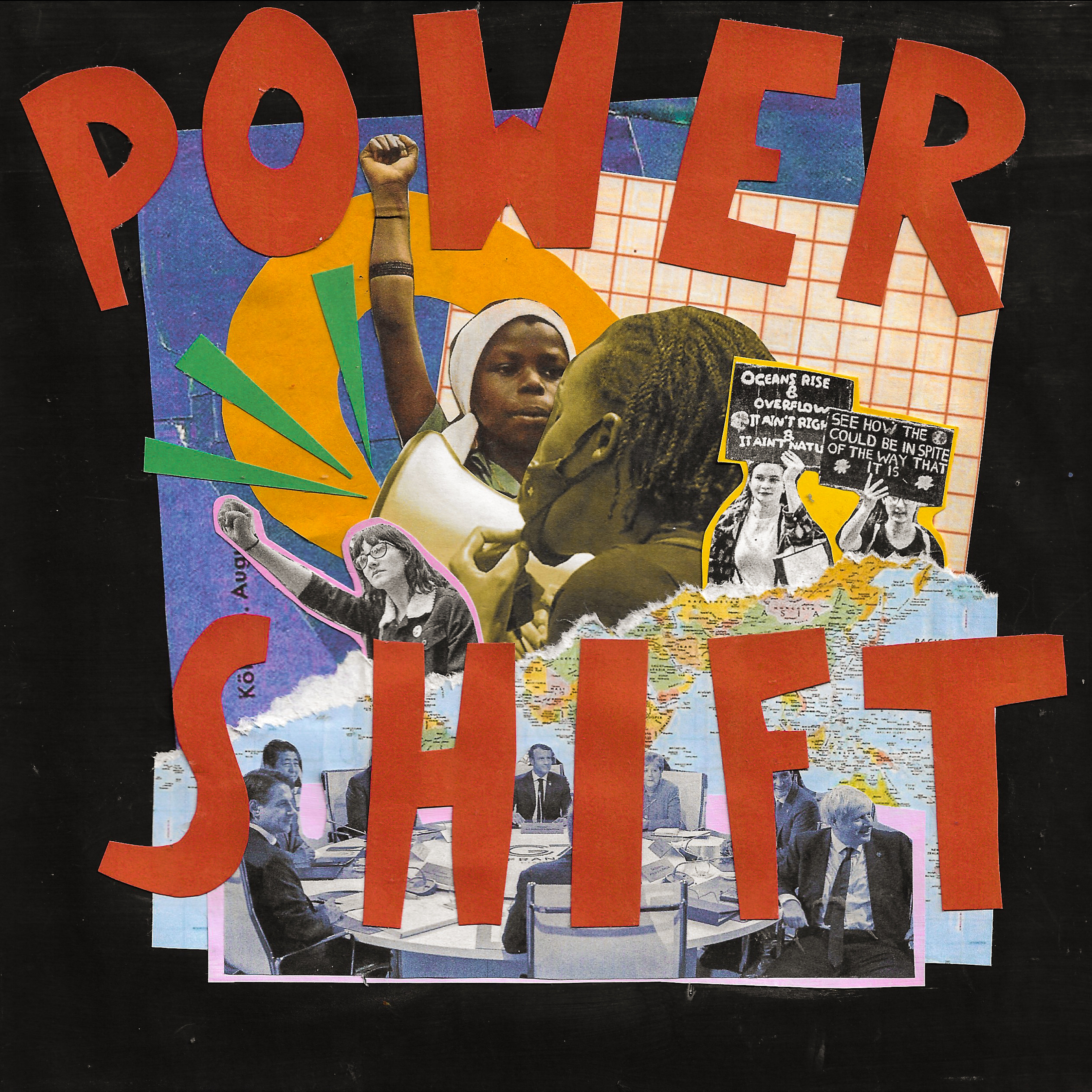
 English
English العربية
العربية Български
Български Hrvatski
Hrvatski Čeština
Čeština Dansk
Dansk Nederlands
Nederlands Suomi
Suomi Français
Français Deutsch
Deutsch Ελληνικά
Ελληνικά हिन्दी
हिन्दी Italiano
Italiano Română
Română Русский
Русский Español
Español Maltese
Maltese Zulu
Zulu አማርኛ
አማርኛ